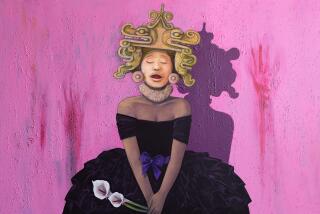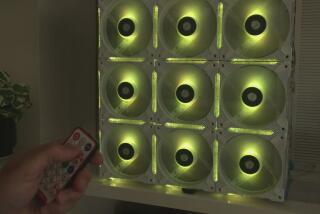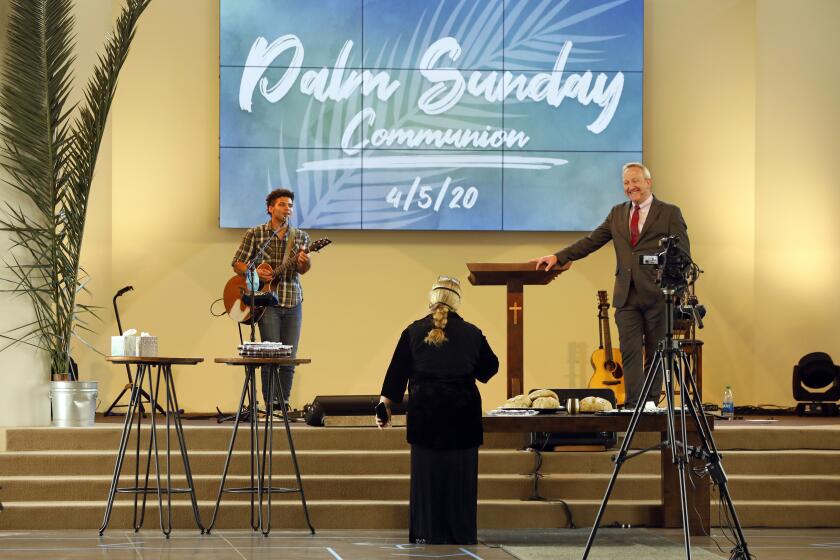Did a Bakersfield nursing student invent hand sanitizer? Coronavirus reignites the Lupe Hernandez debate
Over the last decade, the legend of Lupe Hernandez from Bakersfield has bounced around the medical world.
Haven’t you heard? She’s the student nurse who invented hand sanitizer.
Or so the story went.
Most accounts give a specific date for her breakthrough: 1966. Some say Hernandez did it at Bakersfield College, prompted by a lack of soap and hot water.
Others claim that this novice Florence Nightingale registered a patent for her concoction, but bigger companies such as Gojo Industries, the makers of Purell, appropriated it. (Gojo denies it.) Nearly all tellings identify Hernandez as a woman, but a few insist that Lupe — short for “Guadalupe” — was a man.
Nursing textbooks, college professors and presenters at medical conferences repeated the tale, but the story didn’t circulate far beyond their circles.
Then the coronavirus outbreak hit.
Media outlets worldwide started to report on Hernandez’s “discovery.” They began to call Bakersfield historians and librarians — and Lupe Hernandezes (public records show at least 30 people with that name live in the city).
“If a hand sanitizer company wants to pay me $50,000, I’ll tell them whatever they want. But that’s not my mother,” said Eric Gaona, 53, the son of a Lupe Hernandez from Bakersfield.
Even a Russian journalist reached out to inquire about his mother, Gaona said. Far from being a nurse, she was a former singer in a 1960s girl group called the Rev-Lons.
There are no U.S. patents for hand sanitizer under that name. None of the articles that recount her story cite any primary sources. In Bakersfield, a town that proudly promotes its celebrities — Buck Owens, Merle Haggard, Dolores Huerta — few had even heard the story of “Lupe” — until recently.
Cal State Bakersfield archivist Chris Livingston has searched newspaper archives and databases and found nada. Bethany Rice, curator of collections at the Kern County Museum, did the same with the same result.
“At this time, I’m treating the story as a great example of why to check sources when reading something online and how to verify facts in an article,” she said, even recording a video to emphasize this point. “I would love for the story to be true and it would be an incredible boon to the community if it were, but at this point there is nothing supporting that.”
A hand sanitizer shortage during the coronavirus outbreak has prompted a group of volunteers to produce enough for every inmate, homeless person and elderly person in the Bay Area. The main production center is a UC Berkeley lab, and the distribution site is a San Francisco house.
Oliver Rosales, a history professor at Bakersfield College, said Kern County medical histories are often administrative and “whitewashed.” “It’s a fantastical story because of how important hand sanitizer is now,” he said. “As a historian, I’m skeptical, but I’m curious. If it is true, why hasn’t somebody written about her?”
They have. But at this point, the truth — Lupe Hernandez from Bakersfield is almost certainly a modern-day urban legend — is not so important to those who continue to spread the story. Lupe is now a folk hero in the most literal sense, glorified because of what her “story” and its creation mean to them.
In the wake of a run on hand sanitizer that has cleared out store shelves nationwide, some Latinos brag on social media about how one of their own invented it. Digital posters with a photo purported to be of Hernandez flourished throughout March in honor of Women’s History Month.
When Cindy Collier, director of Bakersfield College’s Health and Wellness Center, recently heard the tale, it didn’t surprise her that a nurse might think of an idea such as hand sanitizer. She sees how a fully plausible saga about a nurse’s MacGyver moment decades ago could have been twisted and passed down over the years.
“Nurses in general, because of desperation when we don’t have what we think we need, we tend to be very ingenious,” Collier said. “Every one of us will have a story where we created something to make our life easier or our patients safer, and we never did anything about it.”
If a Latina nurse did invent hand sanitizer, Collier said, that “would really be a neat thing to be able to say as a nurse, especially with what’s going on right now in the world.”
The earliest mainstream publication to peg a Lupe Hernandez from Bakersfield as the inventor of hand sanitizer is probably the Guardian, which referred to the “student nurse” in a 2012 article
In an email, reporter Laura Barton says her notebooks from the time are in a storage facility she currently can’t get to, but that her “suspicion [is] my source may have been American. I just can’t remember who or what or where it came from.”
There is nothing that indicates “Lupe” was known anywhere before this. Not in Bakersfield lore, not in the annals of nursing, not even among Latinos, where tall tales about the purported connection of Hispanics to glory — did you hear the one about how Walt Disney was a Spanish orphan? — abound.
Whatever the case, Barton’s article percolated through the American nursing world.
Angela Barron McBride, former dean of the Indiana University School of Nursing, included Hernandez in a 2019 update of her textbook for nurses. In an email, McBride said she “wanted to give concrete examples of nurse inventors and was pleased to come across a Latina student nurse’s name. I don’t know anything more about what happened to her.”
Rachel Walker, a professor at University of Massachusetts Amherst College of Nursing, has name-dropped Hernandez in speeches as someone she tries to emulate.
“But when I went back to try to substantiate the story,” she said, “I, too, ran into challenges.”
Maribel Alvarez, a professor of folklore at the University of Arizona, isn’t surprised that even professionals would repeat a historical anecdote with an unclear provenance.
“This story is indexing something in the culture,” she said. “People want to believe it because it explains something in their world.”
That’s why, Alvarez explains, “Lupe Hernandez from Bakersfield” has now taken on a second life among Latinos.
“Crises are the Petri dish of folklore,” she said. “Rumors and legends act like viruses. They flare up in hot spots, and then they disperse.”
The story of “Lupe” is spreading as Latinos disproportionately suffer from the pandemic — as victims of coronavirus, as workers in jobs deemed “essential” with little protection, and also from its economic impact.
In such times, affected communities look for a hero — and so people comfort themselves with “Lupe,” Alvarez said.
“The legend always works in a reversal mode. El que está arriba está abajo; el de abajo sube [The mighty fall; the meek rise]. In this case, Lupe has a possession that others need. What does that tell you? It talks about all the things we don’t value that mexicanos bring.”
But Alvarez also stresses that most folklore has “bits and pieces of a truth. Each one of those pieces — the nurse, the Bakersfield, the name — probably together add to a bigger picture of what the real story is.”
In a Long Beach distillery, a masked skeleton crew churns out hand sanitizer for first responders.
For now, Lupe Hernandezes and their families across the country continue to deal with strangers wondering if they’re that Lupe.
In Colorado, Leshi Hernandez, the daughter of the woman whose photo has circulated online as the Lupe behind the sanitizer, has dug through her late mother’s belongings to try to verify any connection. The chances are slim: Leshi’s mother spent her life in Wyoming and Colorado as a homemaker and housekeeper. In 1966, she would have only been 13.
“We’re kind of just stunned because my mom’s picture came up,” Leshi Hernandez said. “How did she end up linked to all this and where did they get that picture?”
On an online obituary page for a Lupe G. Hernandez, who passed away in 2007, someone left a comment last year that reads: “[Thank] you for hand sanitizer. It helps a lot of people be germ free!”
Meanwhile, Bakersfield’s Lupe Hernandezes and their relatives are taking their brush with celebrity in stride.
Lupe Hernandez Turner, a 62-year-old nurse from Bakersfield, said she’s gotten a handful of calls from reporters over the last few weeks who have asked if she invented hand sanitizer.
Even one of her friends sent her a message.
“They said, ‘Hey, is this you?’” Hernandez Turner said. “I was like, ‘Uh, nope, first I’ve heard of it.’”
Though she is a nurse, Hernandez Turner would have been only 8 in 1966. She became a nurse in 1979 and used her married name Lupe Turner by then.
“Hey, who knows?” she joked. “I could have been a child prodigy!”
Times staff writer Scott Wilson contributed to this report.
More to Read
Sign up for Essential California
The most important California stories and recommendations in your inbox every morning.
You may occasionally receive promotional content from the Los Angeles Times.











